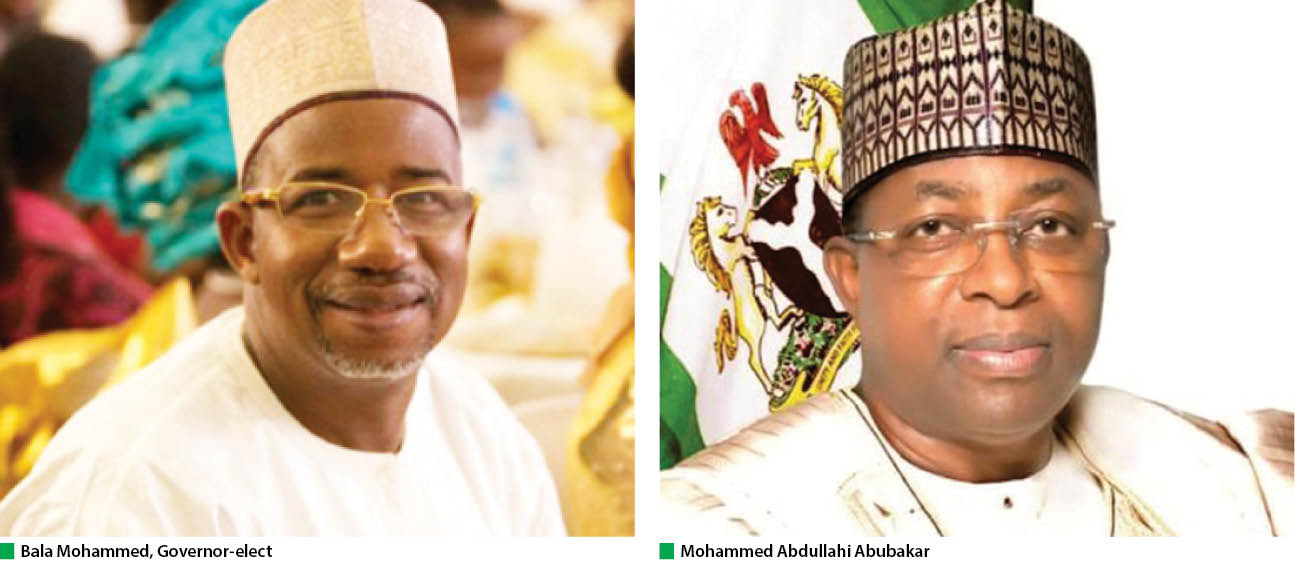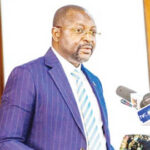In Bauchi State, during the just concluded general elections, the electorate showed a high level of political awareness and sophistication. This was seen in the way most of them voted. The tradition of following a particular political party without critical thinking was relegated to the background as voters made their choices without undue influence. In the process, certain political powers were demystified.
For instance, in the presidential election, President Muhammadu Buhari of the All Progressives Congress (APC) defeated former Vice President Atiku Abubakar of the Peoples Democratic Party (PDP) with a wide margin. But in the National Assembly election, which took place simultaneously with the presidential election, the APC could not get all the 12 House of Representatives slots despite the power of incumbency. The party, however, got the three senatorial seats.
The electorate voted in nine members of the ruling APC, two members of the Peoples Redemption Party (PRP) while the PDP got only one seat.
The pattern, however, changed during the governorship and state House of Assembly elections as Senator Bala Abdulkadir Mohammed of the PDP defeated Governor Mohammed Abdullahi Abubakar of the ruling party.
However, the APC won 22 out of the 31 seats in the state House of Assembly, the PDP won six while the New Nigeria Peoples Party (NNPP) got one seat.
Senator Mohammed was said to have won the governorship election based on many factors. The first factor, according to observers, was the alleged poor performance of the APC administration in the state despite the people’s support.
To show the people’s support for the APC, the party clinched all the three senatorial seats of Bauchi South, Bauchi North and Bauchi Central.
In Bauchi South, the people would have to wait until the court determined the right candidate of the party between the incumbent Senator Lawal Yahaya Gumau and Ibrahim Zailani. In that senatorial zone, the APC was declared winner without the name of the candidate.
Halliru Dauda Jika, the member representing Ganjuwa/Darazo federal constituency won the Bauchi Central Senate seat. He defeated Senator Isah Hamma Misau of the PDP because of the strong support the APC enjoyed in the zone.
The Bauchi North senatorial seat was won by Ambassador Adamu Mohammed Bulkachuwa.
Those elected into the House of Representatives include the incumbent Speaker Yakubu Dogara, who defected from the APC to the PDP. He represents Bogoro/Dass/Tafawa Balewa federal constituency.
At Ningi/Warji federal constituency, Salisu Zakari Ningi of the PDP lost to Baba Iyali of the APC.
Other representatives elected on the platform of the APC are Mansur Manu Soro (Ganjuwa/Darazo); Tata Umar (Shira/Giade); Mohammed Garba Gololo (Gamawa); Basiru Umar Mashema (Itas/Jama’are); Musa Pali (Alkaleri/Kirfi); Umar Muda Lawan (Toro) and Ibrahim Makama (Misau/Dambam).
However, for Bauchi/Katagum federal constituency the electorate voted for the Peoples Redemption Party (PRP) candidate, Yakubu Shehu Abdullahi, popularly known as Wakilin Birni. He defeated the PDP candidate, Aliyu Aminu Garu and Comrade Sabo Mohammed, who was a special adviser to Governor Abubakar, among other candidates.
Abdullahi, a grassroots politician, is the member of the state House of Assembly representing Bauchi constituency. He defected to the PRP from the APC after failing to secure its ticket to contest. His popularity among the electorate became a no-match among other candidates for the seat as he carried out an aggressive campaign, which garnered a lot of support from voters.
Umar Abdulkadir, the PRP candidate who won the election to represent Katagum federal constituency was another surprise. He was an underdog when compared with the incumbent, Ibrahim Mohammed Baba of the APC, popularly known as IMBA. Although many believe he has worked a lot for his constituency, surprisingly, he was defeated.
It is said that the people voted for the PRP as a form of revolt against the APC in that zone, not the candidate.
For the state House of Assembly election, the pattern changed as the seats were split between the APC and PDP, leaving only one for the NNPP. Out of the 31 House of Assembly seats in the state, the ruling APC got 22, leaving the PDP with only six while the NNPP won the Bauchi constituency seat.
In Alkaleri Local Government, Yusuf Mohammed Bako of the APC won Pali constituency seat while Abdullahi Bala Dan of the PDP won Duguri/Gwana constituency, where the governor-elect hails from.
Bauchi constituency was won by Jamilu Umaru Dahiru of the NNPP while Bogoro was won by Musa Wakili of the PDP.
Also, Musa Mate Baraza won Dass constituency while Bala Abdu Rishi won Lame constituency in Toro Local Government Area, and his counterpart, Tukur Ibrahim, won Toro/Jama’a constituency. They are all of the ruling APC.
In Warji Local Government Area, Yunusa Ahmed won Warji constituency while in Ningi local government area, Abubakar Sulaiman won Ningi constituency and Ado Wakili, also of the APC, won Burra.
However, the PDP won the two constituencies in Misau Local Government Area. While Bakoji Aliyu Bobo won Chiroma constituency, Mohammed Babayo won in Hardawa.
Furthermore, the APC candidate, Baballe Abubakar won the Dambam/Dagauda/Jalam constituency of Dambam Local Government Area and the two constituencies in Darazo Local Government.
The current Speaker of the state House of Assembly, Kawuwa Shehu Damina, won Darazo constituency while Sa’id Abdullahi Isa won in Sade constituency.
Two constituencies in Ganjuwa Local Government Area were also won by the APC. Gazali Abubakar won Ganjuwa East while Yusuf Inuwa Dadiye won Ganjuwa West.
The PDP and APC won in the two constituencies in Zaki Local Government Area. PDP’s Wanzam Mohammed won Sakwa constituency while Mukhtar A. Sulaiman of the APC won in Katagum.
Jama’are constituency was also won by APC’s Sale Mohammed while Bala Rabilu won Itas/Gadau constituency of Itas/Gadau Local Government.
Sale Hodi Jibir Bello and Mu’azu Shira of the APC were also declared winners of Disina and Shira constituencies respectively.
The APC also won Giade constituency of Giade Local Government Area, with Dan’Umma Bello as candidate. It also won the four constituencies in Katagum and Gamawa local government areas.
In Katagum Local Government Area, the APC candidate, Tijjani Mohammed Aliyu won Azare/Madangala constituency while Ali Dan’iya won Madara/Chinade constituency.
Udubo constituency of Gamawa Local Government Area was won by Umar Yakubu of the APC while Bello S. Jadori of the same party won Gamawa constituency.
The voting pattern in the state led to the emergence of candidates who wouldn’t have won elections in the past.
Speaking on the situation in the state, Nasuru Darazo, a politician, said Bauchi people had always been revolutionary in their political approach.
“In Bauchi, we always vote based on our consciences, although we have never had many political parties like this time. We have always resisted imposition. It happened in the past when we rejected imposition of candidates by two former governors, Mu’azu and Yuguda. So, it is not surprising if people voted the way they did – they had many choices across parties,’’ he said.
Speaking to Daily Trust on Sunday, an electorate, Bilyaminu Hassan, who hails from Tafawa Balewa Local Government Area, disclosed that he and his wife voted for different candidates in all the elections.
“I voted for President Muhammadu Buhari but different candidates in the National Assembly, governorship and state House of Assembly elections. That was how most of my friends and some of the people I know voted,’’ he said.

 Join Daily Trust WhatsApp Community For Quick Access To News and Happenings Around You.
Join Daily Trust WhatsApp Community For Quick Access To News and Happenings Around You.



